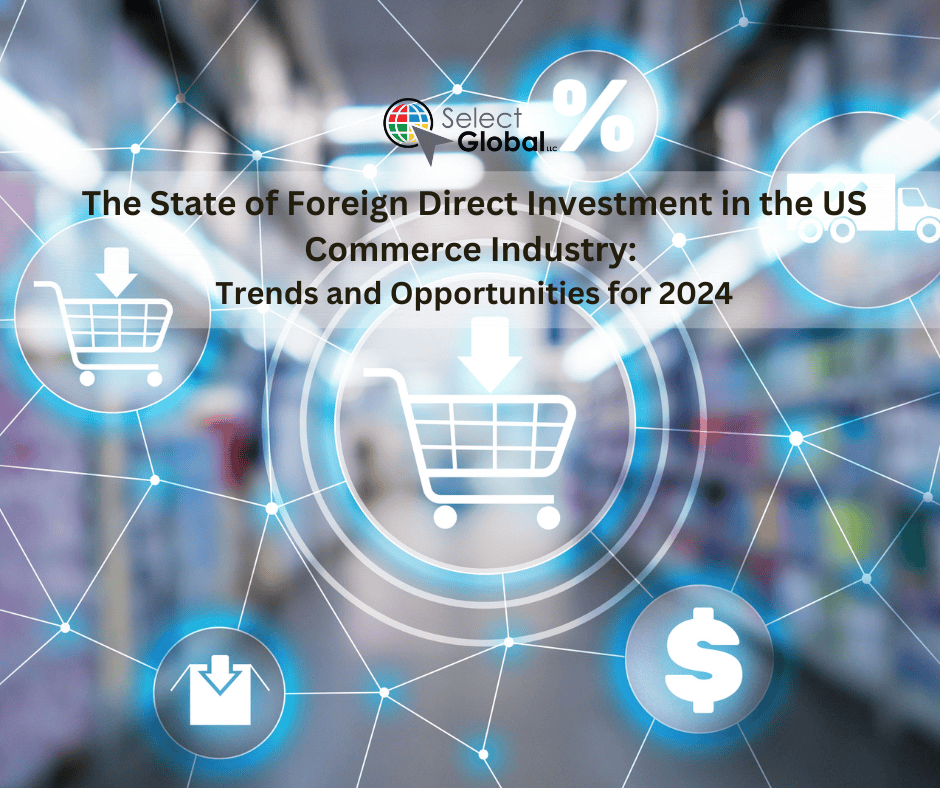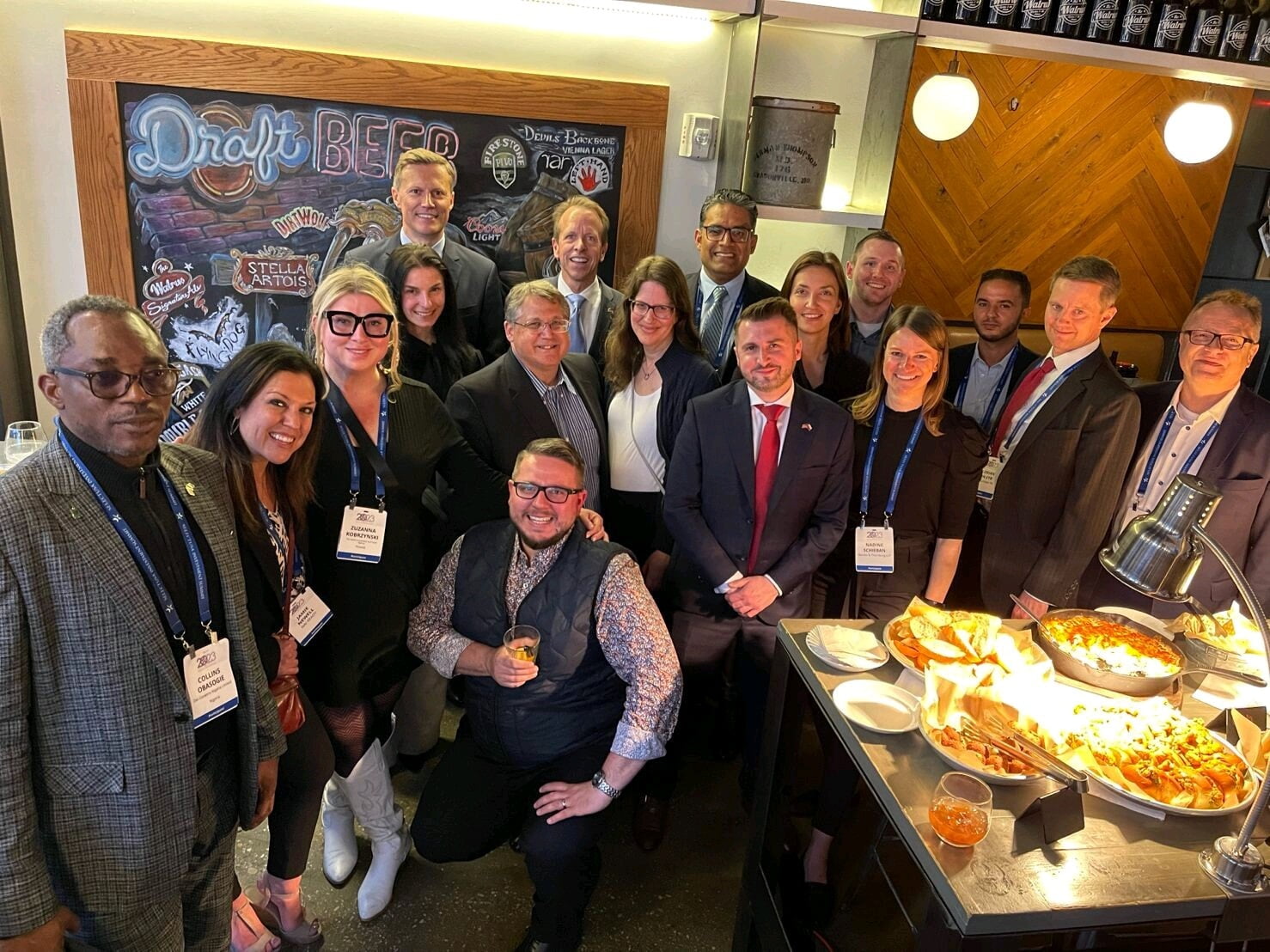
As we progress through 2024, the direction of Foreign Direct Investment (FDI) within the U.S. commerce sector continues to transform significantly. For potential investors, a deep understanding of the latest trends, legislative shifts, and strategic advantages is essential to successfully navigate this dynamic environment. This comprehensive guide offers key insights to help you effectively engage with the evolving FDI opportunities in the U.S. commerce industry this year.
Sector-Specific Insights
E-commerce continues to be a central focus for investment, driven by the ongoing digital transformation of the retail landscape. The integration of AI-driven logistics and personalized shopping experiences is drawing significant foreign capital. Furthermore, advancements in supply chain technology are opening up new avenues for investment, as companies strive to boost efficiency and meet increasing consumer demands. Our analysis of E-commerce trends offers a comprehensive overview of this sector’s remarkable growth.
Legislative Environment
Regulatory Changes
Investors must remain vigilant about the regulatory landscape that influences Foreign Direct Investment (FDI). Recent legislative changes have introduced new compliance requirements and trade policies that are crucial for informed decision-making. Notably, the Inflation Reduction Act has introduced measures that directly affect cross-border investments. Staying informed about these developments is essential, as they have the potential to shape investment strategies and operational decisions. For an in-depth understanding, the Inflation Reduction Act Overview offers detailed insights into these policy changes.
Trade Policies and Tariffs
US trade policies and tariffs also play a significant role in shaping the investment environment. The ongoing discussions around Section 301 duties and their potential impacts on various sectors require careful consideration. Section 301 Duties Overview provides insights into these policies and their implications for foreign investment.
Why Now Is a Good Time to Invest
Economic Resilience
Despite global economic uncertainties, the U.S. commerce industry continues to demonstrate remarkable resilience. Sustained consumer demand, alongside ongoing technological advancements, creates a robust foundation for investment. The recent increase in Foreign Direct Investment (FDI) reflects strong confidence in the sector’s growth prospects, signaling an opportune moment for investors to engage with the market. For a detailed analysis,Economic Resilience Data provides key statistics on consumer spending and other vital economic indicators.
Technological Advancements
The swift pace of technological innovation within the commerce sector presents distinct opportunities for investors. Companies leading the way in digital retail solutions and supply chain advancements are driving this transformation. Investing in these areas not only aligns with prevailing market trends but also strategically positions investors to capitalize on future growth.Technological Innovations in Retail provides insights into key advancements and emerging investment opportunities.
Potential Risks and Challenges
Economic Uncertainties
While the U.S. commerce industry offers promising opportunities, it also carries inherent risks. Economic uncertainties, including inflation and variable consumer spending patterns, may affect investment outcomes. Investors, alongside their trusted advisors, must be equipped to navigate these challenges and implement strategies that foster long-term success. For a comprehensive understanding of the current economic landscape, Inflation and Economic Uncertainty Data provides valuable insights.
Regulatory Hurdles
Navigating the complex regulatory framework may be tough. Adherence to developing trade regulations and compliance standards is critical for mitigating possible hazards. Investors must be updated about legislative changes and verify that their investments comply with all applicable requirements. Regulatory Compliance Resources provides essential advice to assist investors understand and satisfy these requirements.
What’s in It for Investors
Growth Potential
Investing in the US commerce industry offers substantial growth potential. The sector’s ongoing evolution, driven by technological advancements and changing consumer behaviors, provides numerous opportunities for profitable ventures. By aligning investments with current trends, investors can capitalize on the sector’s expansion and achieve significant returns.
Strategic Partnerships
Collaborating with industry experts and agencies can enhance investment success. Working with professionals who understand the intricacies of the US commerce market can provide valuable insights and help navigate regulatory challenges. These partnerships can also facilitate smoother market entry and operational efficiency.
The Need for Expert Guidance
Navigating Complexities
The US commerce industry is a complex and competitive market. Investors benefit from working with experts who possess in-depth knowledge of the sector and its regulatory environment. Agencies specializing in FDI can provide crucial support, including market research, compliance guidance, and strategic advice.
Maximizing Opportunities
Expert guidance can also help investors identify and seize opportunities that may not be immediately apparent. By leveraging the expertise of professionals, investors can make informed decisions and strategically position their investments for success.
Conclusion
In conclusion, 2024 offers a promising environment for Foreign Direct Investment (FDI) in the U.S. commerce sector. The surge in investment, combined with favorable technological advancements and a resilient market, makes this an opportune time for investors. However, successfully navigating the complex regulatory framework and economic uncertainties requires careful planning and expert guidance. By collaborating with experienced agencies and staying informed about current trends and legislative developments, investors can optimize their opportunities and achieve long-term success in the dynamic U.S. commerce industry.





